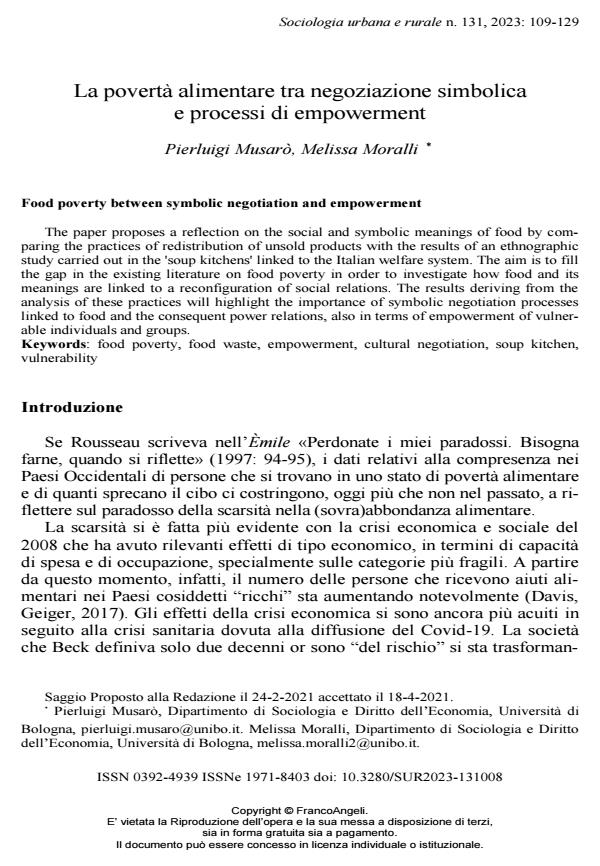Food poverty between symbolic negotiation and empowerment
Journal title SOCIOLOGIA URBANA E RURALE
Author/s Pierluigi Musarò, Melissa Moralli
Publishing Year 2023 Issue 2023/131
Language Italian Pages 21 P. 109-129 File size 320 KB
DOI 10.3280/SUR2023-131007
DOI is like a bar code for intellectual property: to have more infomation
click here
Below, you can see the article first page
If you want to buy this article in PDF format, you can do it, following the instructions to buy download credits

FrancoAngeli is member of Publishers International Linking Association, Inc (PILA), a not-for-profit association which run the CrossRef service enabling links to and from online scholarly content.
The paper proposes a reflection on the social and symbolic meanings of food by compar-ing the practices of redistribution of unsold products with the results of an ethnographic study carried out in the 'soup kitchens' linked to the Italian welfare system. The aim is to fill the gap in the existing literature on food poverty in order to investigate how food and its meanings are linked to a reconfiguration of social relations. The results deriving from the analysis of these practices will highlight the importance of symbolic negotiation processes linked to food and the consequent power relations, also in terms of empowerment of vulnerable individuals and groups.
Keywords: food poverty, food waste, empowerment, cultural negotiation, soup kitchen, vulnerability
- Foodscape e strategie di sopravvivenza: il caso torinese Veronica Allegretti, in SOCIOLOGIA URBANA E RURALE 137/2025 pp.83
DOI: 10.3280/SUR2025-137004
Pierluigi Musarò, Melissa Moralli, La povertà alimentare tra negoziazione simbolica e processi di empowerment in "SOCIOLOGIA URBANA E RURALE" 131/2023, pp 109-129, DOI: 10.3280/SUR2023-131007